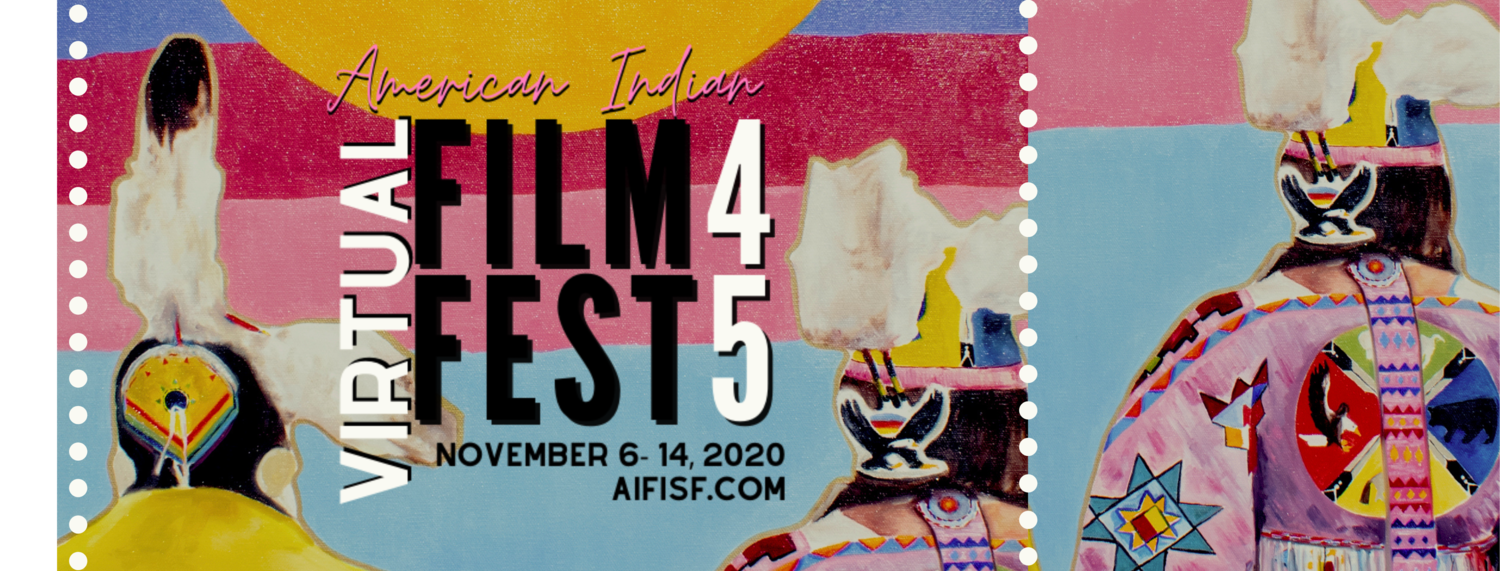
- Details
- By Nanette Deetz
SAN FRANCISCO — In a year that saw four million acres of land in California on fire, the worst pandemic of the 21st century, and other political horrors too numerous to mention, relief is on the way. The 45th Annual American Indian Film Institute or "Virtual 45" film festival will be presented Nov. 6, 2020 through Nov. 14, 2020, and can be accessed via https://watch.eventive.org/aiff45
Tickets are only $10 per program, and each program contains four films. "We have implemented a ‘pay what you can’ option where viewers can purchase a program for as low as $8,” said Mytia Zavala, Executive Director of the Film Institute. "We felt strongly that in a year that has been so very difficult for all of us, we want to make sure our communities have every opportunity to view and enjoy the films.”
This year marks the first time the film festival has ever been completely virtual. The American Indian Film Festival is presenting 102 films and 55 world premieres in just nine days. This is also the first time that the American Indian Film Institute has had films included in the on-boarding platform of a major airline. AIFI has partnered with Alaska Airlines to present films that began running on Sept. 1, 2020 and will continue until Aug. 31, 2021. The judges have curated a program of short films exclusively for viewing on domestic Alaska Airlines flights. The films are a mix of documentary shorts, live shorts, music videos, and animated shorts. The films range between four minutes up to 22 minutes long.
"It is a very good variety. These films were selected because they represent our culture and focus on different regions across Indian Country. This is a program put together by Alaska Airlines Diversity Program. It includes films from the pacific west coast, Asian American, Hawaiian, and Native American entries," Zavala said.
The Annual Awards Night ceremony will be free of charge. It will be a shorter, condensed version of the usual program. "I have contacted some of the same performers who were scheduled to perform last year, before we had to cancel our awards ceremony due to the fires," Zavala explained.
AIFI was also planning to hold a drive-in movie format in Santa Fe, N.M. this year, but decided to wait until 2021 for this new venture.
"If movie viewers get tired of sitting for so long, we have a wonderful break planned with a DJ that will spin records so that folks can get up and dance to his music", Mytia said.
On Nov. 6, the winners of this year's festival will be announced on the online platform when all the films unlock. The 22 programs have been catalogued by themes, such as climate change, food sovereignty, Indigenous sisters, and personal journeys. It is easy to browse through and pick a program.
Zavala suggested that viewers pre-order as soon as they can because tickets went on sale Oct. 1, 2020. The program unlocks on Nov. 6, 2020 and stays open until Nov. 14.
Help us tell the stories that could save Native languages and food traditions
At a critical moment for Indian Country, Native News Online is embarking on our most ambitious reporting project yet: "Cultivating Culture," a three-year investigation into two forces shaping Native community survival—food sovereignty and language revitalization.
The devastating impact of COVID-19 accelerated the loss of Native elders and with them, irreplaceable cultural knowledge. Yet across tribal communities, innovative leaders are fighting back, reclaiming traditional food systems and breathing new life into Native languages. These aren't just cultural preservation efforts—they're powerful pathways to community health, healing, and resilience.
Our dedicated reporting team will spend three years documenting these stories through on-the-ground reporting in 18 tribal communities, producing over 200 in-depth stories, 18 podcast episodes, and multimedia content that amplifies Indigenous voices. We'll show policymakers, funders, and allies how cultural restoration directly impacts physical and mental wellness while celebrating successful models of sovereignty and self-determination.
This isn't corporate media parachuting into Indian Country for a quick story. This is sustained, relationship-based journalism by Native reporters who understand these communities. It's "Warrior Journalism"—fearless reporting that serves the 5.5 million readers who depend on us for news that mainstream media often ignores.
We need your help right now. While we've secured partial funding, we're still $450,000 short of our three-year budget. Our immediate goal is $25,000 this month to keep this critical work moving forward—funding reporter salaries, travel to remote communities, photography, and the deep reporting these stories deserve.
Every dollar directly supports Indigenous journalists telling Indigenous stories. Whether it's $5 or $50, your contribution ensures these vital narratives of resilience, innovation, and hope don't disappear into silence.
 The stakes couldn't be higher. Native languages are being lost at an alarming rate. Food insecurity plagues many tribal communities. But solutions are emerging, and these stories need to be told.
The stakes couldn't be higher. Native languages are being lost at an alarming rate. Food insecurity plagues many tribal communities. But solutions are emerging, and these stories need to be told.
Support independent Native journalism. Fund the stories that matter.
Levi Rickert (Potawatomi), Editor & Publisher
